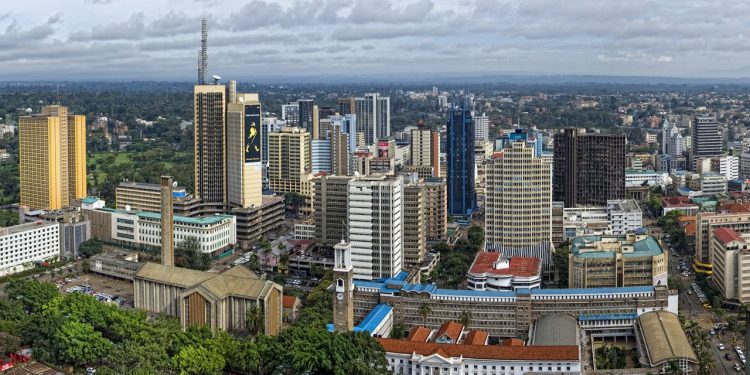Nairobi, Johannesburg and Cape Town increased their ratings in the 30th Global Financial Centres Index by more than 20 points while Casablanca continues to be the leading African centre. Kigali and Lagos join the index for the first time.
Nairobi is ranked at position 98 compared to 106 at the previous rankings, an improvement of 8 positions. Its ratings also improved by 21 points from 521 to 541 during the period under consideration.
Nairobi has major global companies with their regional headquarters. Kenya and Nairobi is ranked 61st in the World Bank’s Doing Business 2019 index, which measures regulations on business activity in countries. Its score of 70.31 is much better than the regional average of 51.61.
Nairobi is Kenya’s Capital Centre
Popularly known as “Silicon Savannah”, the city is a major continental tech hub hosting many innovation hubs and hundreds of startups.
The Global Financial Centres Index (GFCI ), 30th edition was published on 24 September 2021.
GFCI provides evaluations of future competitiveness and rankings for 116 financial centres around the world. In March 2007, Z/Yen and the City Of London released the first edition of the GFCI, which continues to provide evaluations of competitiveness and rankings for the major financial centres around the world.
In July 2016, Z/Yen and the China Development Institute (CDI) in Shenzhen established a strategic partnership for research into financial centres.
The GFCI is updated every March and September and receives considerable attention from the global financial community. The index serves as a valuable reference for policy and investment decisions.
China Development Institute (CDI) in Shenzhen and Z/Yen Partners in London collaborate in producing the GFCI. The GFCI is updated and published every March and September and receives considerable attention from the global financial community.
The index is compiled using 146 instrumental factors. These quantitative measures are provided by third parties including the World Bank, the Economist Intelligence Unit, the OECD and the United Nations.
Findings of the GFCI shows that overall, the average rating fell 12.9 points (2.05%). While a small change, this is the third consecutive fall in the average rating. These factors suggest that there remains some lack of confidence in the world economy.
The fact that overall ratings continue to fall against the levels seen in 2019 reflects the continuing uncertainty around international trade, the impact of the covid-19 pandemic, and geopolitical and local unrest, which has also affected Nairobi.
Global Performance
The relatively strong performance of New York and London suggests that the financial services sectors in these cities managed to sustain their performance despite radical changes in working practices during the last 18 months.
New York leads the ranking, with London second. Both centres fell only slightly in the ratings. Hong Kong and Singapore in third and fourth positions fell 25 points in the ratings.
San Francisco, Los Angeles, and Paris entered the top 10 in GFCI 30, with falls in the ratings and rankings for other leading Asian centres. Nine of the top 10 centres in the index fell in the ratings.
London continues to lead in Western Europe, dropping only three points in the ratings. This reflects confidence in the longer-term prospects for the centre.
Other leading Western European centres had mixed results, with Paris, Amsterdam, Madrid, Stockholm, Hamburg, and Munich moving up the rankings while Frankfurt, Zurich, Edinburgh, Luxembourg, Stuttgart, and Brussels fell back, as centres compete following Brexit.
The majority of the Asia/Pacific centres in the index fell in the rankings in GFCI 30. The exceptions were Hong Kong, Singapore, Seoul, Busan, Wellington, Qingdao, Mumbai, New Delhi, Bangkok, GIFT City-Gujarat, and Jakarta.
ALSO READ:
Nairobi is Top Fintech City in Africa: 2021 Global Fintech Rankings
Kenya is Top Destination for Illicit Cash Flows in Africa-UNCTAD Report




